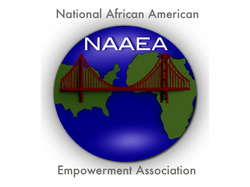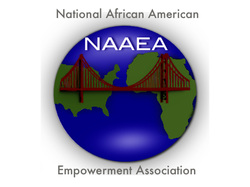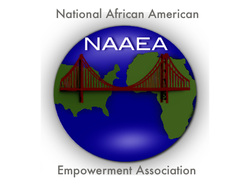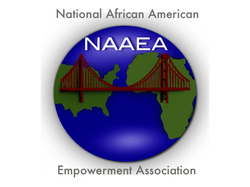 FAMILIES It’s pretty safe to say, that a person has a serious advantage in life if they come from a loving, supportive home. Many people still succeed though they come from less-than-ideal family situations, but having our basic needs met, knowing that our parents love us and learning life lessons at home make all the challenges of day-to-day living that much easier to face. Likely, as an adult you want a happy home for your family. In most societies it is the principal institution for the socialization of children.
Yesterday is gone, tomorrow is not here; all we have is the NOW Without a family, man, alone in the world, trembles with the cold- Andre’ Maurois Karen Franklin National Director of Family Educational and Support Services  Sankore University Rediscover the Glory Where would a 16th century seeker of knowledge want to go to excel in scholarship and literacy? The Sankore University would be a top preference. Sankore University, also known as Sankore Masjid or University of Timbuktu, is one of three ancient centers of learning in Timbuktu, Mali, West Africa. During the 14th-16th century, Sankore University enrolled more foreign students than New York University today. Today, the intellectual legacy of Timbuktu is neglected in historical discourse. These pages of our history tend to get ripped out. Structure and History What began as a simple mosque built on order of the city's chief judge in 989 AD, developed into a masterpiece of architecture. The mosque's courtyard was built in the exact dimensions of the Kaba, located in the city of Makkah, using a rope for precise measurements. The large pyramidal Mihrab remains the most prominent feature of this building. With the financial help of a female philanthropist from Mandika, and support of Mansa Musa (1307-1302 AD) and the Askia Dynasty (1493-1591 AD), Sankore University established itself as the leader in religious and secular education and attracted several thousand foreign students from around the world. But the structure is not the real source of its glory. It is the celebration of this university as one of the world's significant seats of learning and as a community of matchless Muslim scholars during the 14th-16th century. The diverse ethnic and religious backgrounds of students attending Sankore University made it a model of true multiculturalism. Education System and Graduation Sankore University was unique in organization to the universities of medieval Europe. It had no central administration, student registers, or prescribed courses of study; rather, it was composed of several independent schools or colleges, each run by a single instructor or Imam. Students learned from a single teacher and classes took place in the open courtyards of mosques or private residences. While the method of enrollment and format of education seemed simple, the curriculum was intense and comprehensive, including religious and secular subjects. There were four levels of degrees offered by Sankore University. On graduation day, students were awarded Turbans. The turban symbolized Divine light, wisdom, knowledge and high moral conduct. It represented a demarcation line between knowledge and ignorance. The knots and circles of the turban depicted the name Allah, which implied that the student was now obligated to share his knowledge and expertise with fellow human beings in an honorable fashion. Scholars and Professors: Among its most formidable scholars, professors and lecturers were Ahmed Baba (1564-1627), a distinguished historian frequently quoted in the Tarikh-es-Sudan and other works. He penned more than 60 books on various subjects including medicine, law, philosophy, mathematics, and astronomy. Other renowned scholars of Sankore University were Mohammad Bagayogo as-Sudane, Modibo Mohammed al-Kaburi, Abu al-Abbas Ahmad Buryu ibn, Ag Mohammed ibn Utman, Abu Abdallah, and Ag Mohammad ibn al-Mukhtar an-Nawahi. Unfortunately, the university was adversely affected by the Moroccan invasion of the 1590’s and the deportation of its best scholars. It never regained its 16th century eminence. Wisdom Unearthed Over a million manuscripts were recently re-discovered in Timbuktu, Mali and about 20 million more in West Africa. The variety of topics these manuscripts cover is phenomenal. As the historian, Runoko Rashidi, points out, “The collection of ancient manuscripts at the University of Sankore at Timbuktu leaves us in no doubt about the magnificence of the institution and permits us to reconstruct this side of her past in fairly intimate details.” Intellectual Legacy of Africa These manuscripts, incredibly rich in style and content, illustrate the depth of knowledge and intellect of students and scholars in this center of learning in West Africa. “Contrary to the common myth, these manuscripts declare that African culture was not a simplistic oral tradition, but a highly literate and sophisticated culture. The fact that the trade of books in Mali was considered the most profitable business at that time shows how much West Africans loved literacy and education,” says Emad Al-Turk, Chairman and co-founder of International Museum of Muslim Cultures (IMMC). “Muslim and non-Muslim worlds need to rediscover the Sankore University’s glorious legacy in order to appreciate the contribution of Africa to literacy, scholarship, trade, and diversity at the world stage,” adds Al-Turk. It’s enough to conclude with an old West African proverb that testifies to its grandeur, "Salt comes from the north, gold from the south, and silver from the country of the white men, but the word of God and the treasures of wisdom are only to be found in Timbuktu."  NAAEA African History Month Celebration "DESTINATION FREEDOM" Recognizing our Past, Present and Future Join us as we celebrate ourselves! The NAAEA has recognized EDUCATION as the first and most important car on the train that will lead us to our destination; FREEDOM. There are four additional cars that follow EDUCATION; they are TIMBUKTU, FAITH, FAMILIES and COMMUNITY. Join with us as we celebrate our rich history, ourselves and identify the importance of EDUCATION as it relates to reaching our DESTINATION FREEDOM! Activities include:
1:00pm - 3:00pm Famous Brown's Soul Food Café 4935 Nine Mile Road (formerly Shoney’s at Fairfield Commons Mall) Richmond, Virginia 23223 For additional information contact Marvin Roane at (804) 928-7118.  Presents PEACE Day: “Moving From Talk To Action!” Goal: To examine, discuss, and construct an action plan for social change by administering more PEACE in our daily lives, and those of in our sphere of influence. I. Why Peace Day? II. Why Peace over other accomplishments like: politics, economics, education? III. What is PEACE? IV. Do you want PEACE, why or why not? V. Why is PEACE a big deal for our community, do we have it currently? VI. Are we all responsible for keeping the PEACE? VII. Break (10 to 15 minutes- think about your impediments to PEACE) VIII. What are your impediments to PEACE? Why can’t we find Peace? (before we can change the culture and community we must change and work on ourselves; lead by example) IX. How do we arrive at PEACE? What are the vehicles to PEACE? X. Break (10 to 15 minutes, review impediments and paths to peace and construct your peace plan. Be prepared to share.) XI. Reassemble to discuss individual PEACE plans XII. Why today is important, and how it connects to King’s Dream? (Clue: He was a man of planning and action and we’ve been stuck in speech mode OR temporary fix mode. In order to reduce, and eliminate violence in our communities we must first actively start with us and have people in place to hold us accountable to our PEACE PLAN) The ultimate measure of a man is not where he stands in moments of comfort and convenience, but where he stands at times of challenge and controversy. Martin Luther King, Jr. Many of us complain of crime and violence within our community, we complain about abuse, disrespect and poverty. Yet we continue to consciously ignore the core issues that continue to stare us in the face as if they will magically go away "if we don't look at them". These CORE ISSUES exist and continue to exist in the areas of education (truly preparing ourselves and our children to compete on a local, state, national and global scale), rates of incarceration and unemployment. The simple fact is: is it "'our collective" responsibility to address, correct and solve these issues ourselves. It is our responsibility to properly educate our children, to create safe environments for them as well as create opportunities for employment for them (not the police, city/locality, state or federal government). As we reflect on Dr. Kings "DREAM", let's begin to use our great minds and creativity to collectively create a "NEW DREAM" where brotherly love, self respect, character, integrity, community, family and "your word is bond" means something to each "us" again, wherever (where - anywhere - wheresoever) "we" are!
YOU DON"T HAVE TO LISTEN TO ME, BUT YOU CAN THINK ABOUT WHAT I AM SAYING! |
NAAEA
|
 RSS Feed
RSS Feed